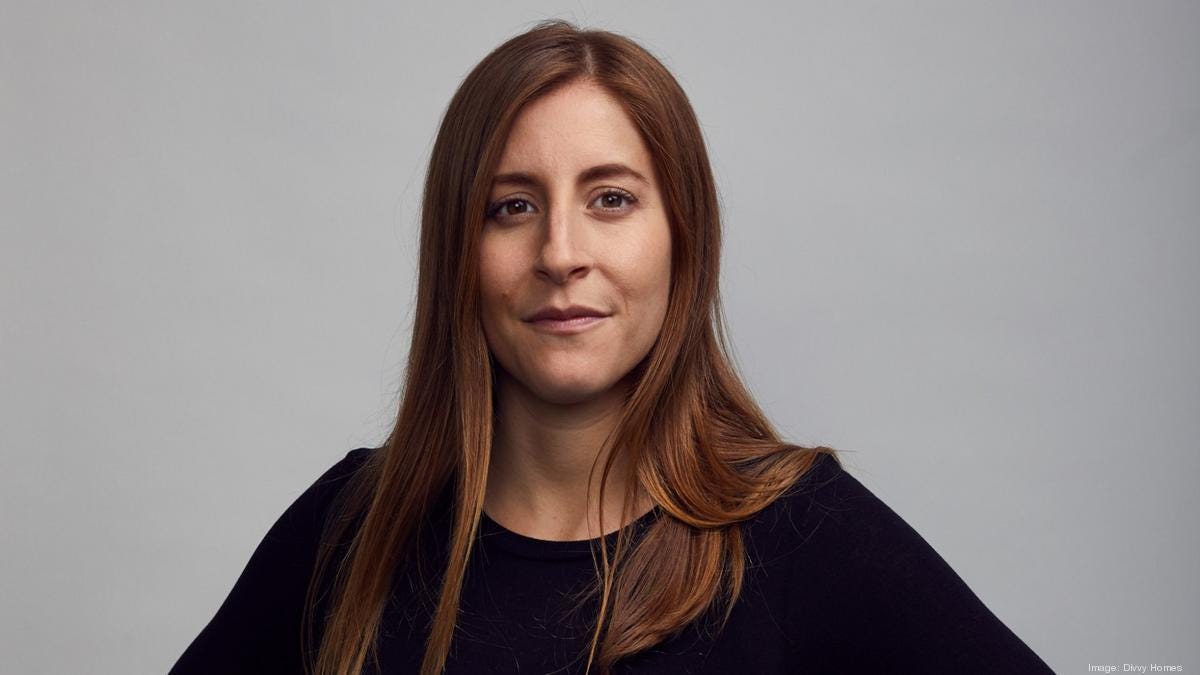This article is part of Fintech Leaders, a newsletter with 56,000+ dreamers, entrepreneurs, investors, and students of financial services. I invite you to share and sign up! And, if you enjoy this conversation, please consider leaving a review on Apple Podcasts, Spotify, or wherever you get your shows so more people can learn from it.
In this episode, I sit down with Adena Hefets, CEO/Co-Founder of Divvy Homes, one of the most innovative PropTech companies in the US that helps renters transition into homeowners with a rent-to-own model.
They have raised over $350 million from great investors, including Andreessen Horowitz, GGV Capital, GIC, Tiger Global, Caffeinated Capital, and Max Levchin.
In this episode, we discuss:
How Divvy’s rent-to-own model is a win-win for consumers, giving them the flexibility to be homeowners without necessarily having a mortgage.
“It acts just like a mortgage and it's actually more flexible than a mortgage.”
Divvy Homes offers an innovative alternative to traditional mortgages, allowing homebuyers to pick their desired house, enjoy stability, and save in equity without the need for a mortgage. Individuals can get pre-approved and shop for a home within their budget, signing a lease with an option to purchase instead of a mortgage contract. Monthly payments made to Divvy function similarly to mortgage payments, with the added flexibility of choosing how much to save in the house's equity, providing a pathway to homeownership without the constraints of a traditional mortgage.
What’s going on in the US commercial and residential real estate markets? Adena gives a deep dive of the tough state of the market.
Commercial real estate is struggling due to financing dynamics and a major shift to remote work. When it comes to the financing side of commercial real estate, there are two primary issues: a cash flow issue and a maturity issue. The cash flow issue arises when rental payments do not cover the cost of interest on debt due to vacancies. The maturity issue is caused when the valuation of an office building decreases, which creates a gap between the debt and the value of the property that must be covered by the owner. These issues have led some owners to return the keys to their properties, creating a risk for banks and other debt holders.
On the single-family residential market front, the reality is quite different. According to Adena, the market is thriving. Despite the pandemic, the single-family residential market has seen a huge surge in demand, driven by people's desire for more space and a backyard. Supply has not been able to keep up with this demand, leading to rising home prices. Additionally, government intervention during the pandemic, such as mortgage payment pauses for those affected by unemployment, helped prevent foreclosures and kept the market supply constrained. The Fed's decision to raise interest rates did dampen demand to some extent, but not enough to offset the lack of supply. Therefore, home prices, despite some fluctuation, have remained relatively high.
Leadership and productivity lessons after six years in the CEO role.
“I would rather work with fewer, better people, than more average people.”
Adena Hefets claims she has been called an annoying boss by her team. However, she’s proud to share that her style of pushing her team relentlessly, setting high expectations, and demanding continuous improvement brings the best out of people. Her approach drives people to achieve more than they thought possible in a short period. Hefets' greatest strength is also her greatest weakness, as it can be overwhelming for those around her. Despite this, she embraces the duality and recognizes that it's part of her journey to success.
Struggles from their early fundraising journey, building company culture… and a lot more!
“I am so forever grateful for those people who were willing to put in the time and energy to understand Divvy and saw the potential in it.”
Divvy's capital structure has grown over time, eventually leading them secure larger facilities with banks like Goldman Sachs and establishing a robust system for reporting and accountability. However, it didn’t start like that - they had to rely on creative set-ups and a much thinner infrastructure to get the company off the ground.
Want more podcast episodes? Join me and follow Fintech Leaders today on Apple, Spotify, or your favorite podcast app for weekly conversations with today’s global leaders that will dominate the 21st century in fintech, business, and beyond.
Previous Episodes To Enjoy:
Video Highlights You Will Definitely Like:
Miguel Armaza is Co-Founder & Managing General Partner of Gilgamesh Ventures, a seed-stage investment fund focused on fintech in the Americas. He also hosts and writes the Fintech Leaders podcast and newsletter.
So You Want to Raise Venture Capital? Learn From 9 Founders Who Have Collectively Raised $1.8 Billion in Funding
Listen now (26 min) | This article is part of Fintech Leaders, a newsletter with 56,000+ dreamers, entrepreneurs, investors, and students of financial services. I invite you to share and sign up! And, if you enjoy this conversation, please consider leaving a review on Apple Podcasts



























Share this post